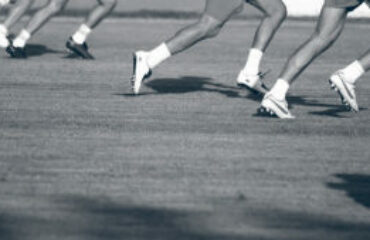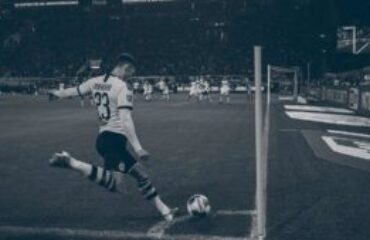THEORETICAL FRAMEWORK
Although millions of children play soccer worldwide, only a few achieve the top-level. Talent identification (TI) is essential to select and recognize youth players who will be successful in professional leagues. However, TI is a very complex and largely unexplored process. The majority of studies regarding this topic compared successful youth players with their less successful peers or examined differences in performance during adolescence (Reilly et al., 2000; Williams & Reilly, 2000). Therefore, more comprehensive research on TI (e.g., comparing skill-related traits of talented players not only during their prospective development, but also, at subsequent stages) is clearly warranted. For example, it seems that, at the professional level, the differences between players are less related to physical qualities and more related to technical and tactical aspects (Reilly et al., 2000; Elferink-Gemser et al., 2004). In a simpler context, a more tactically skilled player tends to perform “the right action” at “the right moment” (Gréhaigne & Godbout, 1995). Nonetheless, it is important to consider that different skills are necessary for different positions (e.g., defenders, midfielders, and attackers), which also implies in different tasks during the match-play (Grehaigne et al., 1999; Taylor et al., 2004). These specific capabilities (i.e., technical-tactical roles) should be considered when developing TI programs. This study evaluated the tactical skills of youth soccer players and compared them between adult players who reached (or did not reach) the professional level.
STUDY OBJECTIVES
The specific objectives of this study were to assess the tactical skills of elite youth soccer players at an early stage of their career and compare these skills between players who reached the professional level in adulthood and those who became amateurs.
MAIN RESULTS
To identify possible factors capable of predicting success over time, 105 elite youth soccer players who had participated in a TI program at an earlier stage of their sport career were assessed. Among these players, 52 became professionals (“professional group”) and 53 amateurs (“amateur group”). All players, regardless of their playing position (defenders, midfielders, and attackers) completed the “Tactical Skills Inventory for Sports” to assess declarative and procedural knowledge in both attacking and defensive actions. Among all tactical skills, positioning and deciding were shown to be the best predictors of adult performance level (especially for midfielders). Overall, soccer players who presented higher scores in these skills had an almost seven times greater chance of achieving the professional level when compared to players with lower scores.
CONCLUSIONS
It is practically impossible to achieve higher levels of performance in elite soccer without properly developing tactical abilities, especially those related to positioning and deciding skills. This is essential for all soccer players, irrespective of playing position, but is even more important for midfielders.
FSI STATEMENTS
- Coaches and practitioners should focus on appropriately developing tactical skills of soccer players from the earlier stages of their prospective development.
- It is crucial to match the tactical training approaches to playing positions, as different positions have different game demands.
- Independent of playing position, soccer coaches and technical staff are encouraged to create training strategies able to improve positioning- and deciding-related skills.
- TI programs should focus on assessing tactical skills in youth soccer players, as tactically skilled players are more prone to achieve the highest levels of performance in soccer.
Reilly T, Williams AM, Nevill A, Franks A. A multidisciplinary approach to talent identification in soccer. J Sports Sci 2000: 18: 695–702.
Williams AM, Reilly T. Talent identification and development in soccer. J Sports Sci 2000: 18:657–667.
Elferink-Gemser MT, Visscher C, Lemmink KAPM, Mulder TW. Relation between multidimensional performance characteristics and level of performance in talented youth field hockey players. J Sports Sci 2004: 22: 1053–1063.
Gréhaigne JF, Godbout P. Tactical knowledge in team sports from a constructivist and cognitivist perspective. Quest 1995: 47: 490–505.
Grehaigne JF, Godbout P, Bouthier D. The foundations of tactics and strategy in team sports. J Teach Phys Educ 1999: 18: 159–174.
Taylor JB, Stephen DM, Nic J. Behavioural comparisons of positional demands in professional soccer. Int J Perform Anal Sport 2004: 4: 81–97.





